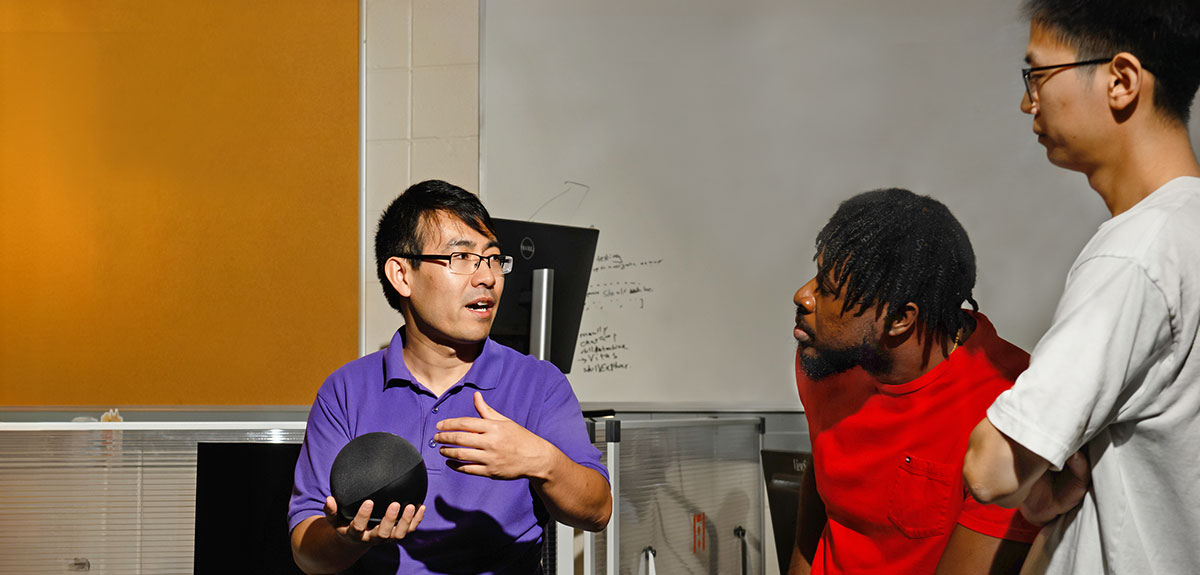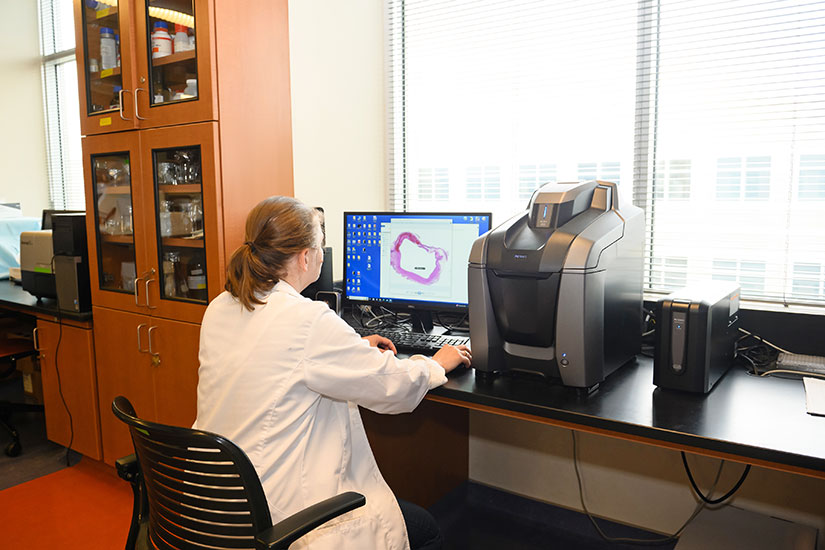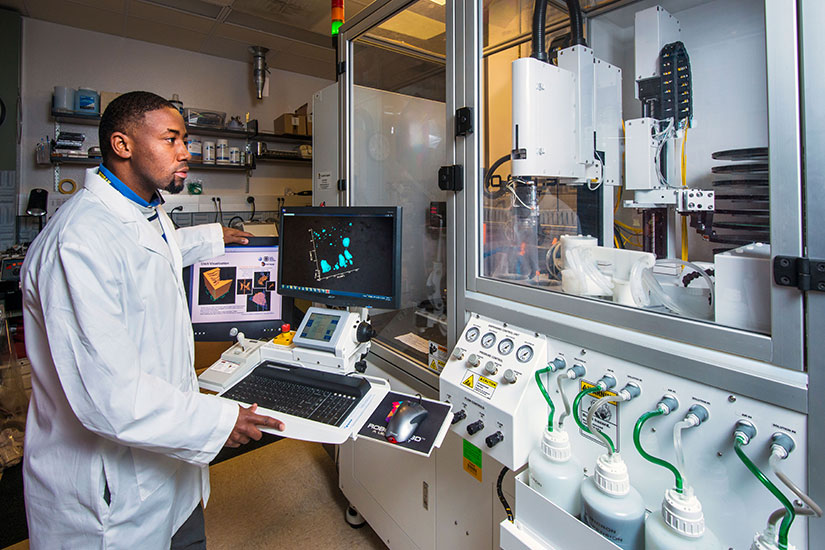Graduate Studies in Computing

Computer Science, M.S.
This program prepares one for a career in advanced computing and Ph.D. studies through rigorous coursework and participation in innovative research projects. Students graduate with a foundation in computer science and practical experience in designing and implementing software systems.
M.S. | CS ProgramComputer Science, Ph.D.
The Ph.D. in Computer Science is designed to offer students the opportunity to engage in innovative research in all areas of computing while also expanding knowledge in core sectors of computer science.
Ph.D. | CS Program

Biomedical Data Science & Informatics, M.S.
The BDSI M.S. is an interdisciplinary program that spans computing, mathematics, public health, and the biological sciences. Graduates of the program will be able to manage and analyze big data sources, from mobile sensors to genomic and imaging technologies.
M.S | BDSI ProgramBiomedical Data Science & Informatics, Ph.D.
The Ph.D. in BDSI is a joint program offered by Clemson University and the Medical University of South Carolina. The program brings together Clemson's strengths in computing, engineering, and public health and MUSC's expertise in biomedical sciences.
Ph.D. | BDSI Program

Digital Production Arts, M.S.
The Digital Production Arts, M.S. is a technical degree focused on software development for digital art using the tools and programming of computer graphics.
M.S. | DPA ProgramDigital Production Arts, MFA
The Digital Production Arts, MFA combines an applied creative education with the technical know-how to wield and develop digital software tools. The MFA has a mandatory thesis with a DPA focus.
MFA | DPA Program

Human-Centered Computing, Ph.D.
The HCC Ph.D. is focused on the design, creation, and evaluation of computational technologies as they relate to the human condition and how these technologies affect society. The objective of the degree is to prepare graduates for research positions in industry and academia by extending the frontier of knowledge.
Ph.D. | HCC ProgramMaster of Applied Computing
The MAC offers students without a computer science background the opportunity to obtain an advanced computing degree through a core readiness sequence and one of six tracks - AI and machine learning, cybersecurity, data science, human-computer interaction, software engineering, or visual computing.
MAC Program

MSCS Readiness
Designed to prepare those without a computer science background to begin the master's program in 1 year, the MSCS Readiness sequence consists of 6 modules to prepare students to begin the M.S. in Computer Science the following Fall Semester.
MSCS Ready ProgramB.S. to M.S.
The School of Computing offers a combined Bachelor/M.S. education plan, which allows students to apply up to nine hours of graduate (6000- and 8000-level) courses towards both a bachelor's degree and an M.S. degree. M.S. opportunities are in CS and BDSI.
Bachelor's to Grad Program
